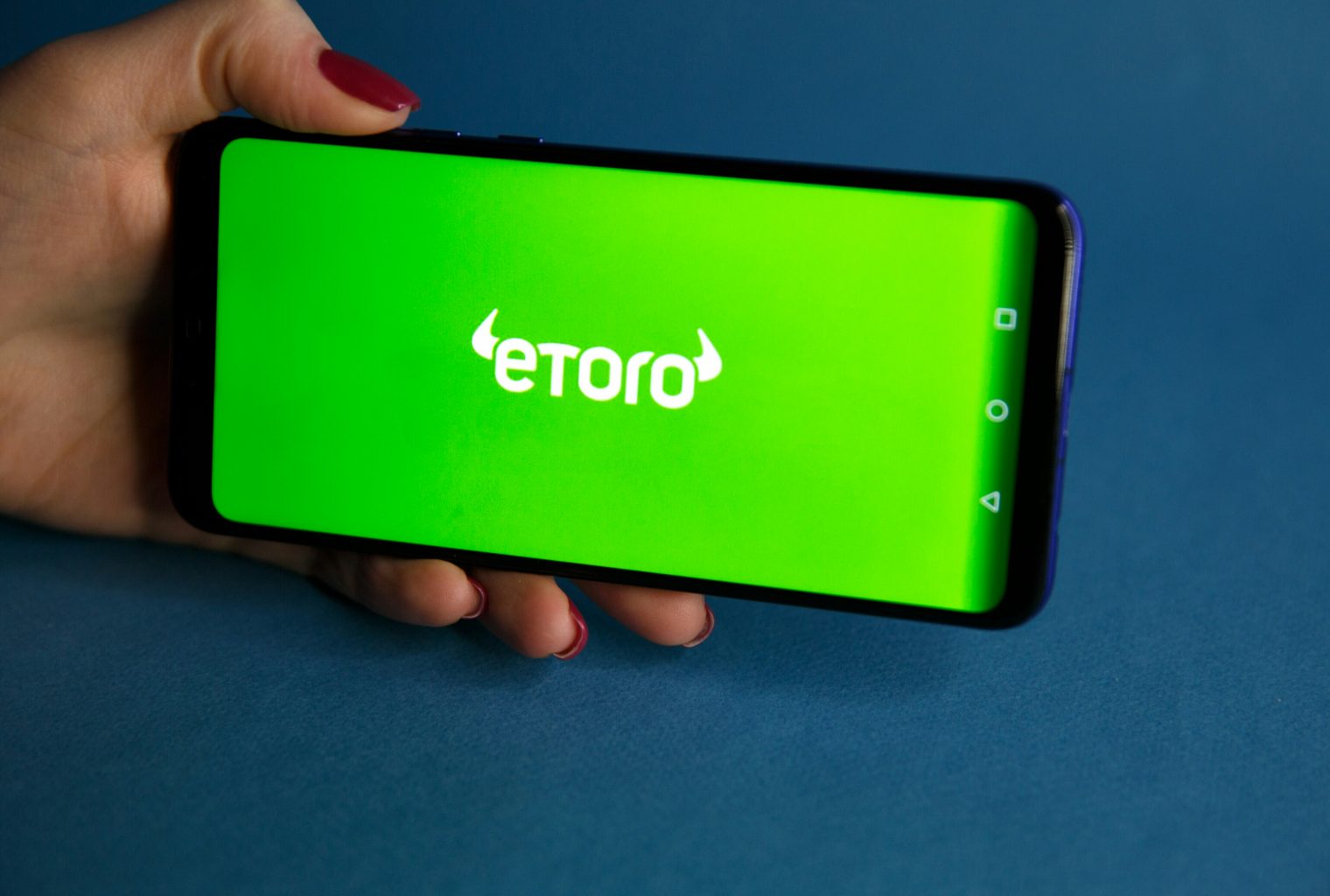eToro Targets $4B Valuation With Planned Nasdaq Debut
07.05.2025 17:00 2 min. read Alexander Stefanov
Israeli trading platform eToro is preparing to go public in the U.S., aiming for a valuation of up to $4 billion as it moves to list shares on the Nasdaq under the ticker “ETOR.”
The company hopes to raise $500 million through the sale of 10 million shares priced between $46 and $50 each, according to a May 5 filing.
Half of the shares will be issued by eToro itself, while the remainder will come from early backers, including co-founders Yoni and Ronen Assia and firms like Spark Capital and BRM Group. Some BlackRock-managed accounts have already shown interest in buying as much as $100 million worth of stock.
eToro, which offers both stock and crypto trading with a focus on retail investors, is positioning itself as a rival to Robinhood. Though Robinhood saw a drop in crypto trading volumes earlier this year, its stock is up nearly 30% year-to-date.
The company disclosed that crypto-related revenue reached $12.1 billion in 2024, a sharp increase from $3.4 billion the year before. Crypto trading currently makes up over a third of eToro’s commission-based income, although that’s slightly down from the previous year.
Still, regulatory and reputational hurdles remain. eToro’s IPO documents caution that unfavorable media coverage or steep user losses could dent demand. The platform also flagged compliance costs tied to new crypto laws in the U.S. and Europe, particularly the EU’s MiCA framework, which is expected to impact operational expenses long term.
-
1
U.S. Bank Advises Clients to Drop These Cryptocurrencies
29.06.2025 10:00 2 min. read -
2
Chinese Tech Firms Turn to Crypto for Treasury Diversification
26.06.2025 17:00 1 min. read -
3
FTX Halts Recovery Payments in 49 Countries: Here Is the List
04.07.2025 18:00 2 min. read -
4
What Are the Key Trends in European Consumer Payments for 2024?
29.06.2025 8:00 2 min. read -
5
What Brian Armstrong’s New Stats Reveal About Institutional Crypto Growth
29.06.2025 15:00 2 min. read
Here is Why Stablecoins Are Booming, According to Tether CEO
In a recent interview with Bankless, Tether CEO Paolo Ardoino shed light on the growing adoption of stablecoins like USDT, linking their rise to global economic instability and shifting generational dynamics.
U.S. Dollar Comes Onchain as GENIUS Act Ushers in Digital Era
In a statement that marks a major policy shift, U.S. Treasury Secretary Scott Bessent confirmed that blockchain technologies will play a central role in the future of American payments, with the U.S. dollar officially moving “onchain.”
JPMorgan Lawsuit Threatens Crypto Access and Open Banking Rights
JPMorgan and other major U.S. banks are under fire for a lawsuit aimed at dismantling the Consumer Financial Protection Bureau’s (CFPB) newly established “Open Banking Rule.”
Greed Holds as Market Momentum Builds: What is the Market Sentiment
The crypto market remains firmly in “Greed” territory, with CoinMarketCap’s Fear & Greed Index clocking in at 69/100 on July 19. Despite a modest 24-hour dip from 71, the index has now held above 60 for 11 consecutive days.
-
1
U.S. Bank Advises Clients to Drop These Cryptocurrencies
29.06.2025 10:00 2 min. read -
2
Chinese Tech Firms Turn to Crypto for Treasury Diversification
26.06.2025 17:00 1 min. read -
3
FTX Halts Recovery Payments in 49 Countries: Here Is the List
04.07.2025 18:00 2 min. read -
4
What Are the Key Trends in European Consumer Payments for 2024?
29.06.2025 8:00 2 min. read -
5
What Brian Armstrong’s New Stats Reveal About Institutional Crypto Growth
29.06.2025 15:00 2 min. read


